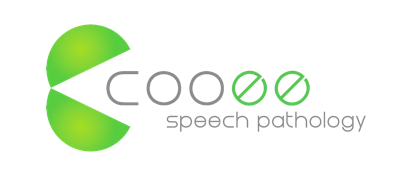Rett Syndrome Awareness Month
October is Rett Awareness Month! To raise awareness of the rare condition, our North Brisbane Speech Pathologists and Occupational Therapists have written this blog with some basic facts about Rett Syndrome and how it affects communication, motor skills, and independence.

What is Rett Syndrome?
Rett Syndrome is a rare genetic disorder which affects the brain and leads to severe impairments that impact most aspects of a person’s life. The condition occurs almost exclusively in girls (1 in 10,000 female births). Rett syndrome is very rare in males. Commonly children’s early development will appear normal but then slows down or halts. In other words, children experience regression, or loss of previously acquired skills.
Each individual with Rett is unique, however children with this condition often experience:
- Repetitive hand movements while awake (near constant)
- Breathing difficulties
- Cardiac issues
- Swallowing and digestion difficulties
- Scoliosis
- Seizures
- Reduced eye contact
- Loss of communication ability
“Imagine the symptoms of autism, cerebral palsy, and epilepsy affecting one child who cannot speak… this is Rett Syndrome” (Rettsyndrome.org)
Rett Syndrome is not degenerative, however over time children’s motor and communication skills may deteriorate. Usually children alternate between periods of improvement and periods of impairment or deterioration. There are four stages of Rett Syndrome which describe the presentation of the condition over time. Read more about the stages here.
A child who has been diagnosed with Rett Syndrome (usually by a paediatrician) should be eligible for the National Disability Insurance Scheme (NDIS). The NDIS can assist families by providing funding to access the therapies their child needs.
Communication skills and Rett Syndrome
Rett syndrome has a significant impact on a child’s communication skills. The majority of children with Rett Syndrome are minimally verbal due to significant apraxia. The apraxia typically affects their whole body and makes it difficult to coordinate the muscles to move and do voluntary activities like walking and talking. Children with Rett syndrome can often understand more than they can say. Due to the significant apraxia and effort it takes for these children to coordinate movements, they will typically need a minimum of 30 seconds to respond to you. Most children with Rett Syndrome will require an alternative or augmentative communication (AAC) system to help them communicate with you. By being patient, giving them time to express their messages, and learning their AAC system you can support their communication.
Independence in activities of daily living for children with Rett Syndrome.
The presentation of Rett Syndrome has many functional delays across the individuals profile. Children with Rett Syndrome have significant impairments for their motor skills, altered sensory processing and can have delayed cognitive skills. Consequently, an individual with Rett Syndrome is likely to have difficulties with functional skills like walking, feeding themselves, using cutlery, getting dressed or putting on simple items of clothing, having a shower or going to the toilet independently. Children with Rett Syndrome may require a mobility aid like a wheelchair or a stroller to support their motor system and reduce any fatigue when participating in their environments or in the broader community. They may also require alternate seating options during self care tasks, mealtimes or learning activities. Most individuals with Rett Syndrome are likely to be dependent on a caregiver to engage in their activities of daily living across their lifespan.
Who can help my child with Rett?
Children with Rett have complex needs which impact most areas of their life. A team of professionals can support you to help your child with Rett. The below is not an exhaustive list.
- Speech Pathologist: supports communication development and social skills and provides communication partner training. Communication is often multi-modal through AAC. Specially trained speech pathologists can also diagnose and treat swallowing and feeding difficulties.
- Occupational Therapist: supports children to participate in their activities of daily living including sleeping, eating, and playing. They support children to develop fine and gross motor skills and help them stay calm and alert to support their learning. OTs can help with applications and access to mobility equipment and work closely with speech pathologists to provide alternative communication access methods.
- Physiotherapist: supports children to develop their gross motor skills and posture, allowing them to move and walk more easily.
- Paediatrician: usually diagnoses Rett Syndrome by determining if a child’s behaviours, challenges, and symptoms meet the diagnostic criteria. Paediatricians are often instrumental in making relevant referrals to support your child’s medical and developmental challenges.
- Neurologist: supports challenges arising from brain differences including seizure activity.
- Geneticist: confirms the diagnosis of Rett syndrome through genetic testing. Can provide information on what you can expect regarding your child’s development based on their unique genetic profile.
- Teacher: supports your child to learn and access the curriculum through an individualised curriculum plan (ICP).
Resources and useful links
Head to these useful websites, If you would like some more information about Rett Syndrome!
- Rettsyndrome.org – international Rett Syndrome website
- Rettaustralia.com – Rett information with a specific focus on Australia
- First 100 days – this resource provides a pathway for families about what happens after the first 100 days from diagnosis.
- Rett World Congress – for parents and researchers interested in Rett Syndrome
- Communication guidelines – a handbook for communication best practices for children with Rett
We hope you have learned something about Rett Syndrome from this blog. Help us raise awareness for Rett Syndrome, by sharing this blog, any of the above websites and resources, or talking to your friends and family about Rett Syndrome.

Stephanie Harris
Speech Pathologist

Bre Surawski
Occupational Therapist
